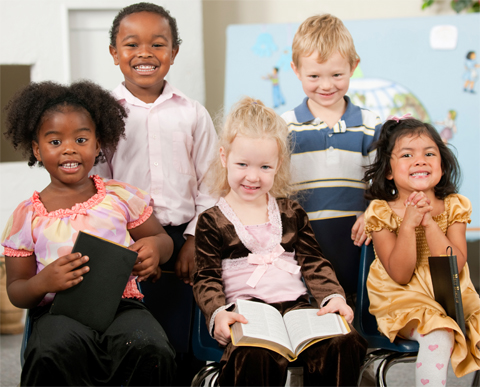By Margaret F. Williamson and Roberta L. Watson, New Orleans Baptist Theological Seminary
In this third and final article, Williamson and Watson consider “learning styles” from the perspective of both teacher and student. The authors examine personality and preferred learning style and explore implications for Christian education.
The Myers-Briggs Type Indicator
The Myers-Briggs Type Indicator (MBTI) was one of the earliest assessment tools for describing personality traits. The instrument, developed by Isabel Myers and her mother, Katherine Briggs, in 1962, was drawn from Jung’s work concerning psychological types. Originally, adults answered 143 questions by choosing from four different possibilities.
- extroversion versus introversion
- sensing versus intuition
- thinking versus feeling
- judging versus perceiving
Within the MBTI, learning style is described as a personality-related preference. When the results are scored, students are classified into one of 16 personality types “based on the way they view their environment, make decisions, focus on the inner world of ideas and concepts or the outer world of people and things, and respond to situations with acceptance or judgmental attitude”
Wheeler et al. (2004) emphasized that learning style and personality preferences remain constant over time. Therefore, completing the MBTI can help the individual identify both the strengths and weaknesses found within his own personality preferences toward learning. Hanson and Silver (1995) identified the learning characteristics of four different personality combinations drawn from the sensing/intuition and thinking/feeling measurements.
How MBTI Impacts the Classroom Experience
According to McClanaghan (2000), the MBTI has been used to help students identify their primary personality characteristics and resulting learning styles. She stressed that “helping students learn how to learn may be the most important lesson faculty can teach students” (p. 485).
Teaching students how to learn usually requires additional effort on the part of the teacher. This additional effort can have a huge payoff for both teachers and learners. Possible activities can include talking to students about expectations, study strategies, and learning strategies. For example, students who prefer objective-style tests may struggle with preparing for and taking essay-style exams that require students to personalize and integrate learned concepts. Teachers who are willing to help students learn how to prepare for both testing styles can see a marked improvement in student achievement and satisfaction.
Learning Style Theories
Learning style theories can be helpful in maximizing learning for all students. The theories can help educators focus on both their personal strengths and weaknesses in the classroom and how these strengths and weaknesses will connect with the variety of learners they face. Learning style theories can be used effectively as a tool to help develop the skills of both teacher and learner.
However, learning style theories should not be used to judge student intelligence and abilities or to label learners. A great danger exists when learning style theories are misused. If educators are not careful, learning style theories will be used to predetermine student interest and success. Students will live up (or down) to those predetermined expectations. Instead, learning style theories should be used to help educators recognize the differences among students that are inherent in every classroom. Only when educators stretch their personal teaching styles to include a variety of teaching methodologies aimed at various types of learners will learning style theory positively impact classroom experiences.
Obviously, no teacher can incorporate all learning styles research into daily teaching approaches. So, what can a teacher do with this avalanche of information? Choose the learning style theory that makes the most sense to you personally. Work to strengthen the classroom experience based on what you have discovered through that theory. Celebrate even small successes, and do not be afraid to adapt failures and try them again. Students will appreciate your efforts.
Finally, the first article of this three-part series stressed the importance for Christian educators to use Jesus as their teaching model. Christian educators agree that Jesus used a variety of methods and experiences in His teaching ministry. The intent behind His methodology is even more important to consider.
Jesus was summarily concerned with His hearers and His message. Therefore, He willingly adapted His teaching style to fit the specific situation, matched His teaching method with the message He needed to communicate, and led His learners in moving from concrete experiences to abstract principles. Ultimately, Jesus taught to transform lives rather than to impart information. Should we, as Christian educators, attempt to do less? Developing knowledge of learning styles research can help Christian educators more effectively teach to meet individual learning needs as well as to transform lives.
Download Description of Four Temperaments
Read Part 1: Learning Styles – Teach Like Jesus
Read Part 2: Learning Styles – Teaching Tips
—
About The Authors:
Margaret F. Williamson (Ph.D., New Orleans Baptist Theological Seminary) serves as Assistant Professor of Christian Education and Director of Training and Communication of the Extension Center System for New Orleans Baptist Theological Seminary.
Roberta L. Watson (M.A.C.E., New Orleans Baptist Theological Seminary) serves as Research Assistant at New Orleans Baptist Theological Seminary.
Funding for the research project this article was developed from came from the Lilly Endowment, Religious Division.
Learning Styles Research II: Understanding How Learners Prefer to Receive Information is taken from the Christian Education Journal, CEJ: Series 3, Vol. 3, No. 2. Copyright 2006; p 343-360. All rights reserved. Permission granted by Christian Education Journal.
Want to share this article outside of your ministry? Want to post this electronically? Please contact Dr. Kevin Lawson, Editor for permission Editor.cej@biola.edu.
Subscribe to Christian Education Journal: cej.subscriptions@biola.edu







